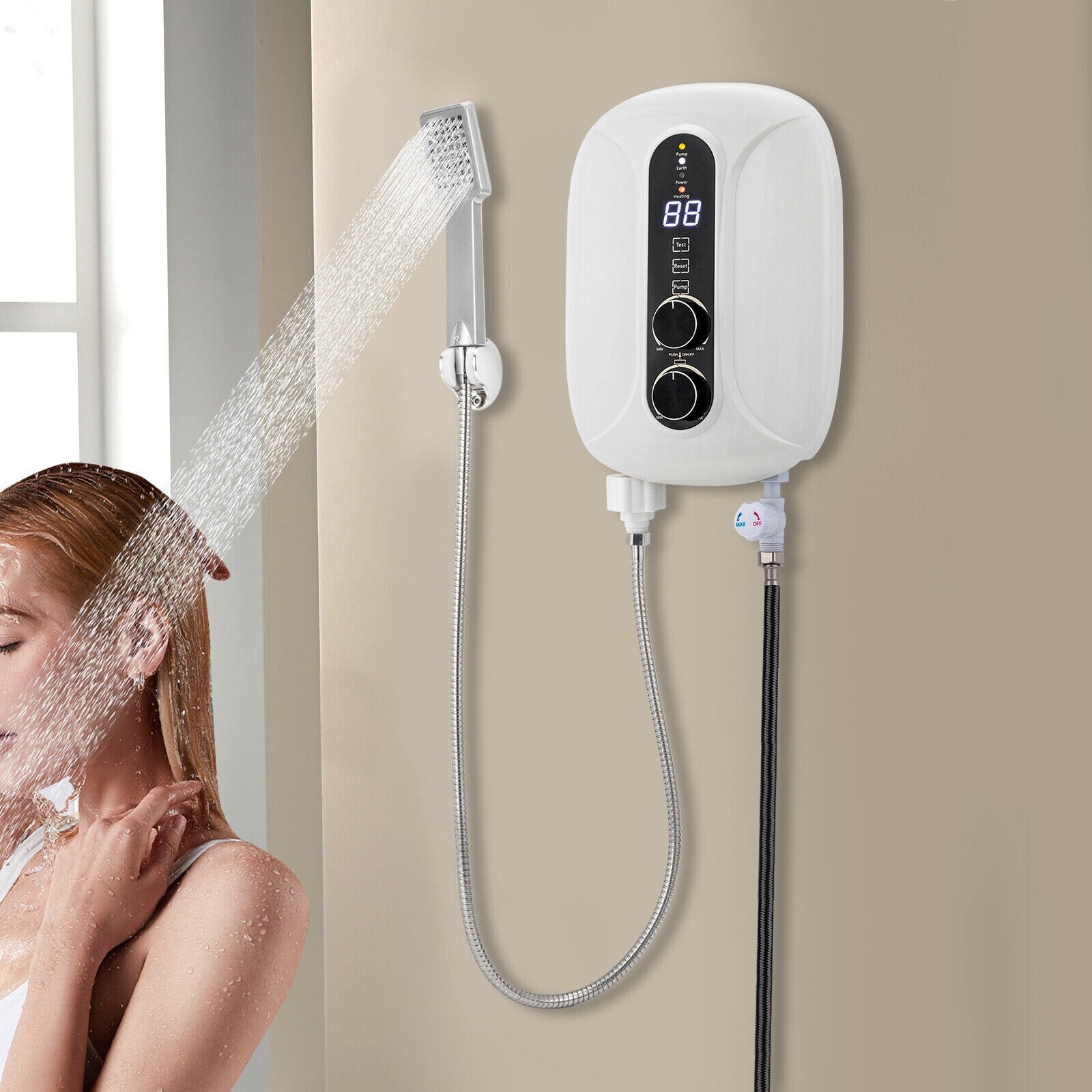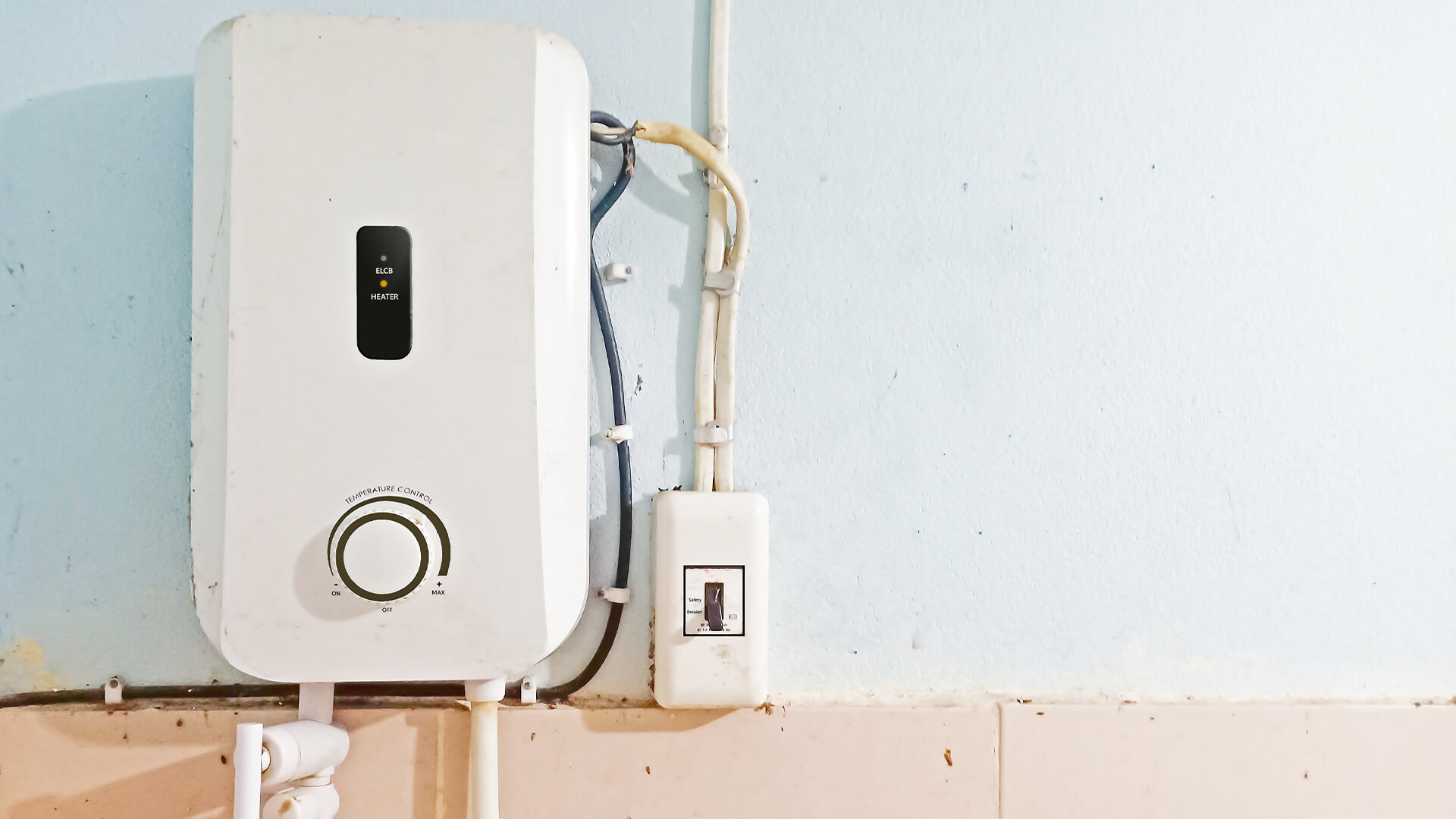Optimizing Home Comfort: The Benefits Of Tankless Water Heaters
Optimizing Home Comfort: The Benefits Of Tankless Water Heaters
Blog Article
Any individual will have their private perception in relation to Why You Should Consider a Tankless Water Heater.

In a world where comfort and performance preponderate, it's not a surprise that house owners are frequently in search of smarter means to handle their home's power usage and comfort. One development that has progressively gotten popularity is the tankless water heater. Yet just what makes these systems stick out from the conventional tank-based versions the majority of us matured with? Let's dive in and explore the advantages of tankless hot water heater, aiding you decide if it's time to make the switch in your home.
Introduction
Image this: you step into the shower after a long day, anticipating a calming waterfall of hot water, only to be greeted by icy beads because the last individual used all of it up. Audio familiar? Conventional water heaters save a set amount of warm water, meaning you go to the grace of that tank's supply. Tankless systems, on the other hand, warmth water on demand. Say goodbye to going out mid-shower, no more fumbling with timetables just to ensure warm water is available.
Recognizing Tankless Water Heaters
What Are Tankless Water Heaters?
Tankless water heaters, sometimes called on-demand or instantaneous water heaters, give hot water only as it's required. Rather than saving gallons of pre-heated water, these devices kick right into action the moment you activate the faucet. Water travels through a warm exchanger, heating up in real-time, implying you get an undisturbed flow of warm water without the requirement for a huge tank resting idly by.
How Do They Differ from Conventional Systems?
Conventional heaters hold a storage tank of hot water, making use of power to keep that storage tank at a regular temperature. Tankless systems remove the standing supply, cutting down on lost energy and the large footprint of a huge cyndrical tube. Essentially, you're updating from a "accumulation" way of thinking to a "made-to-order" strategy.
Common Types of Tankless Units
Tankless water heaters normally can be found in 2 selections: gas and electrical. Gas versions often tend to provide higher circulation prices, suitable for larger homes, while electric designs typically serve smaller sized homes and are generally simpler to install. Furthermore, some systems are created for point-of-use (serving one component) while others can take care of the whole home's hot water requirements.
Trick Advantages of Tankless Water Heaters
1. Countless Hot Water Supply
Ever before had to set up showers so everyone obtains their reasonable share of hot water? With tankless, that becomes a thing of the past. As long as the heater's flow capability isn't gone beyond, you can take back-to-back showers without becoming a popsicle.
2. Power Effectiveness and Price Financial Savings
No more heating a giant tank's worth of water and maintaining it warm all the time. Tankless heating systems decrease standby energy losses, which can lower utility costs. While the first cost could be higher, the lasting savings often validate the financial investment.
3. Space-Saving Layout
If your home is short on storage space, removing the bulky storage tank frees up important area. Tankless units are portable and can typically be installed on walls, tucked away in edges, or mounted in tight energy storage rooms without gobbling up the entire space.
4. Longer Life-span
A well-kept tankless hot water heater can outlast its tank-based cousin. Typical storage tanks could last 10-15 years, while tankless models can maintain downing along for 20 years or more, making them a strong financial investment with time.
5. Improved Water Top Quality
Storing water in a container can in some cases lead to sediment accumulation or a somewhat "off" preference. With tankless systems, fresh water is heated instantly, decreasing the possibilities of debris build-up and potentially providing cleaner-tasting water.
Considerations Prior To Changing
Though the advantages are compelling, it's wise to consider a couple of elements before fully devoting.
Preliminary Financial Investment Costs
Tankless heaters generally come with a greater upfront cost. Between the unit itself and possible installment adjustments, the first price might provide you sticker shock. Yet keep in mind to view it as a lasting financial investment.
Installation Requirements
Relying on your home's facilities, you might require added electrical ability or gas line upgrades. Ensure you comprehend the installment requirements and talk to a specialist to avoid surprises.
Assessing Your Home's Water Use Patterns
If your household at the same time utilizes numerous components with high warm water demand, make certain the system's flow rate fulfills your needs. Knowing your use patterns helps you pick the appropriate dimension and kind of tankless heating unit.
Maintenance and Care Tips
Tankless systems are reasonably reduced upkeep, yet they aren't set-it-and-forget-it devices.
Routine Cleaning and Descaling
Hard water minerals can build up in the warmth exchanger, influencing performance. Routine descaling (typically recommended every year) keeps the system going for peak performance.
Annual Specialist Assessments
A yearly checkup from a professional makes sure small concerns are caught early. They'll evaluate the device's efficiency, search for leakages, and help preserve optimum performance.
Ensuring Appropriate Ventilation
For gas models, proper ventilation is important to safely remove exhaust gases. Ensure airing vent systems are clean and correctly installed to avoid any possible security threats.
Contrasting Different Brands and Versions
Not all tankless hot water heater are developed equivalent.
Investigating Reliable Manufacturers
Look for trustworthy brands with a background of producing quality units. A dependable producer frequently gives much better client assistance and longer guarantees.
Checking Out Evaluations and Individual Comments
Individual reviews and responses from neighbors or good friends who have actually gone tankless can supply important understandings. In some cases, real-life experiences can be more telling than advertising brochures.
Setup: DIY or Professional?
While some home owners cherish dealing with projects themselves, tankless installation could not be the very best time to burst out the toolbox.
Pros and Cons of DIY Installation
A DIY set up could save cash, yet it includes dangers. Inaccurate setup can cause ineffectiveness or safety concerns. If you come in handy and have experience, it might be possible-- but wage caution.
When to Call a Specialist Plumbing Technician
For many, calling a professional makes sure everything's done appropriately. A professional plumbing professional comprehends local codes, sizing needs, and venting parameters, reducing the risk of incidents.
Optimizing Performance
You've purchased a tankless device-- currently maximize its effectiveness.
Optimal Temperature Setups
Many people set their systems in between 120-140 F. Adjusting the temperature level can boost convenience and cost savings. Experiment to discover a wonderful area that does not lose power.
Coupling With Low-Flow Fixtures
Intend to extend your unit's capabilities? Consider installing low-flow showerheads and faucets. They decrease water usage, enabling your tankless system to provide a stable stream of hot water without straining.
Environmental Impact
Tankless hot water heater line up with greener living goals.
Decreased Carbon Impact
By using much less power and just heating water as needed, tankless systems can decrease your home's carbon footprint, reducing your environmental effect.
Conserving Natural Resources
Less power intake and less thrown away hot water translate right into fewer natural resources being used, an ecological win-win.
Who Profits Many from Tankless Heaters?
The charm of tankless heating units is that they can suit a selection of families.
Big Family Members vs. Single Occupants
Huge households could love the countless hot water supply, while single passengers value the power financial savings from not warming an entire storage tank for just one person's early morning shower.
Home Owners with Restricted Space
If your home is short on square footage, shedding the large tank liberates space for various other basics-- or possibly simply much more elbow room.
Eco-Conscious Customers
Going tankless aligns with environmentally friendly worths, ensuring you're not squandering energy or sources.
Future Fads in Tankless Water Heaters
The globe of home appliances is ever-evolving, and tankless hot water heater are no exemption.
Smart Home Integration
Think of adjusting your water heater's temperature level using an application or getting upkeep signals on your phone. As smart home technology advancements, we'll see even more connectivity and ease.
Advancements in Innovation
R&D is continuously boosting warm exchangers, making devices much more reliable and durable. Future designs could be even quieter, extra small, and far better suited for varying climates.
Conclusion
Choosing a tankless water heater is more than simply updating your home's warm water system; it's purchasing long-term convenience, power efficiency, and a greener way of living. By considering your family's water usage, bearing in mind installment needs, and devoting to routine upkeep, you can appreciate a steady stream of warm water without the baggage of a cumbersome storage tank. As innovation evolves, you can eagerly anticipate even smarter, much more effective tankless solutions that not only make your life simpler but additionally benefit the earth.
5 Benefits of Tankless Water Heaters
Save Valuable Space
Since tankless water heaters do not have a massive 40+ gallon tank of water, they are considerably smaller and can fit in more narrow spaces in your home.
If you are working with limited square footage, a tankless water heater will still provide you with the hot water you need while taking up significantly less space in your home. While the exact size of a tankless water heater varies depending on the brand, some are as small as a carry-on suitcase.
Endless Supply of Hot Water
While a traditional water heater preheats and stores your water in the tank, tankless water heaters do not rely on a reservoir system.
This means that they do not run out of hot water like traditional water heaters since they make hot water as needed. Traditional water heaters need to stop and reheat water when the tank inevitably runs out, but tankless water heaters do not have this issue.
Provide Warm Water On-Demand
As mentioned above, tankless water heaters do not preheat a certain amount of water and then store it in a massive tank to be used later. An advantage of installing a tankless water heater includes water being heated instantly whenever you turn on the faucet.
When you turn on the water, it will travel through a heat exchanger in the unit and be heated with either an electric element or a natural gas burner. Gone are the days of having to ration out your hot water to make sure that you do not run out.
Longer Life Cycle
Not only do tankless water heaters provide an endless supply of hot water for your home whenever you want it, but these units tend to have a longer lifespan than water heaters with tanks.
Tanked water heaters have an average lifespan of around 10 years, as the tank is prone to corrosion, leading to serious issues. In comparison, tankless water heaters can last for around 15 to 20 years with the proper maintenance and tune-ups.
Energy Efficient
Compared to traditional water heaters, tankless water heaters are a more energy-efficient water heating option for your home. Tank water heaters must heat and reheat the water stored in the tank throughout the day, even if you are not home.
This energy use adds up over time, leading to an increase in your energy bills and added strain on your unit. A benefit of buying a tankless water heater includes saving money since it only operates when you turn on the hot water. Since it only heats up as needed, this can decrease your energy bills and save you money in the long run.
https://callrandazzo.com/blog/5-benefits-of-tankless-water-heaters/

I came across that blog post about when surfing around the internet. For those who enjoyed reading our article plz make sure you remember to share it. I am grateful for being here. Revisit us soon.
Details Here Report this page